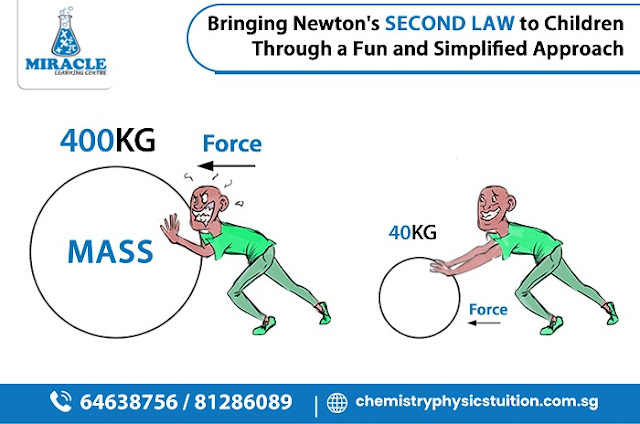Gravity Explained! The Force Keeping Us On The Ground
We know
gravity keeps us grounded (no pun intended). But they are also responsible for
influencing different aspects of not just our planet but our entire universe.
It is an invisible force that comes with a colossal impact.
Despite centuries of study, it remains to
be one of the actively researched area. The fundamentals of gravity
being foundational topics where students are introduced to the concept.
In this blog, we will be diving into how
gravity holds us to the ground and other impacts related to it.
What Is Gravity?
Gravity is a force of attraction that
exists between any two objects with mass. The greater the mass of an object,
the stronger its gravitational pull. Sir Isaac Newton, in 1687, formulated the
Law of Universal Gravitation, stating:
"Every particle of matter in the
universe attracts every other particle with a force that is directly
proportional to the product of their masses and inversely proportional to the
square of the distance between their centres."
Newton's Law of Universal Gravitation
rightly explains why objects fall to the ground when dropped and why celestial
bodies, like the Earth and Moon, orbit each other.
Gravity and the Ground Beneath Us
On Earth, gravity ensures we stay rooted
to the ground. Here’s how it works —
· Earth’s Mass: The Earth’s massive size generates a strong gravitational pull. This pull
acts on everything, from buildings to people, keeping us anchored.
· Downward Force: The force of gravity pulls objects toward the Earth’s centre, which we
perceive as "down." This pull gives us our sense of direction and
balance.
· Weight: What we call "weight" is the force of gravity acting on an object’s
mass. This is why weight changes on different planets but mass remains constant.
How Gravity Influences Our Lives?
As earlier stated, the effects of gravity are much more than just keeping us on the ground.
It impacts various aspects of our lives, such as —
Walking and Movement: The
friction between our feet and the ground, aided by gravity, allows us to walk
without floating away.
Atmosphere:
Gravity holds Earth's atmosphere in place, providing the oxygen we need to
breathe.
Tides: The
gravitational interaction between Earth and the Moon causes ocean tides,
affecting marine ecosystems and coastal environments.
Engineering and Architecture:
Structures are designed to counteract gravity, ensuring stability and safety.
Gravity Beyond Earth
While gravity keeps us grounded on Earth,
it also governs the cosmos. Some of the instances are —
Orbits:
Planets orbit the Sun due to the Sun’s gravitational pull. Similarly, the Moon
orbits Earth.
Black Holes: These
regions in space have such intense gravity that not even light can escape.
Weightlessness in Space:
Astronauts experience microgravity because they are in a constant state of free
fall around Earth.
Can Gravity Change?
Gravity depends on mass and distance,
meaning it varies across different locations and conditions.
On Earth:
Gravity is slightly weaker at higher altitudes, such as on mountaintops, due to
increased distance from Earth's centre.
In Space:
Gravity decreases with distance from massive objects. In the vacuum of space,
far from planetary bodies, the force of gravity becomes negligible.
But this doesn’t mean that your mass
changes with the force of gravity. Mass is unchangeable no matter where you
are, but it is your weight that changes based on the gravitational force of a location.
Sounds interesting, right? If you are
interested in learning more on this topic and master your lesson on the fundamentals of gravity, try joining an expert chemistry physics tuition.



Comments
Post a Comment